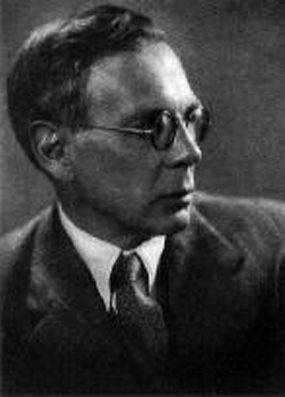Song without music: Auden’s “For the Time Being: A Christmas Oratorio”
Tuesday, December 23rd, 2014 W.H. Auden learned of the death of his mother, Constance Rosalie Bicknell Auden, by telephone in August 1941, while he was staying in Rhode Island. The international call was taken by his lover Chester Kallman, who came to Auden’s bedroom and told him they would not be attending a party that evening. Then he told him why.
W.H. Auden learned of the death of his mother, Constance Rosalie Bicknell Auden, by telephone in August 1941, while he was staying in Rhode Island. The international call was taken by his lover Chester Kallman, who came to Auden’s bedroom and told him they would not be attending a party that evening. Then he told him why.
“Auden was stunned and grieved, not only because he had been very close to his mother all his life. He was already in a state of emotional fragility, having learned just the month before that Kallman, whom he loved and to whom he considered himself married, had been having sex with other men and meant to continue the practice,” writes Alan Jacobs, editor of Princeton University Press’ splendid critical edition of Auden’s For the Time Being: A Christmas Oratorio. Thursday is only the first of the Twelve Days of Christmas – if you haven’t seen the book already (it was published last year), you still have plenty of time to find it before Twelfth Night.
Auden would later write, “When mother dies, one is, for the first time, really alone in the world and that is hard” – Jacobs adds, “that experience of isolation was surely made far more intense through its arriving in the midst of hopes already ruined.”
A few weeks after the death, Auden moved to my own alma mater, the University of Michigan, to begin a year of teaching (his daunting course syllabus is here). And shortly after that he was applying to the Guggenheim to write “a long poem in several parts about Christmas, suitable for becoming the basis of a text for a large-scale musical oratorio.” That long poem was his attempt to see Christmas in double focus: as a moment in the Roman Empire and in Jewish history, and as an eternal and ever-new event.
His father, a learned and cultivated physician, was confused by the mixture of the past and present in the poem, the modern New York characters and the references to juke-boxes and clocks on the mantlepiece with ancient Judaea. Auden tried to explain in a long letter:
Sorry you are puzzled by the oratorio. Perhaps you were expecting a purely historical account as one might give of the battle of Waterloo, whereas I was trying to treat it as a religious event which eternally recurs every time it is accepted. Thus the historical fact that the shepherds were shepherds is religiously accidental – the religious fact is that they were the poor and humble of this world for whom at this moment the historical expression is the city-proletariat, and so on with all the other figures. What we know of Herod, for instance, is that he was a Hellenised Jew and a political ruler. Accordingly I have made him express the intellectual’s eternal objection to Christianity – that it replaces objectivity with subjectivity – and the politician’s eternal objection that it regards the state as having only a negative role. (See Marcus Aurelius.) …
I am not the first to treat the Christian data in this way, until the 18th Cent. it was always done, in the Mystery Plays for instance or any Italian paintings. It is only in the last two centuries that religion has been ‘humanized,’ and therefore treated historically as something that happened a long time ago, hence the nursery picture of Jesus in a nightgown and a Parsifal beard.
If a return to the older method seems startling it is partly because of the acceleration in the rate of historical change due to industrialization – there is a far greater difference between the accidents of life in 1600 AD and in 1942 than between those of 30 AD and 1600.
Kind of makes one chuckle, doesn’t it? As one taps on a keyboard to produce a message that, as soon as I press the “publish” button, will be instantly available around the world…
“Auden’s recognition that those last few centuries of the Roman Empire might serve as a mirror for the twentieth-century self-immolation of the West is the initiating insight of the project that would become ‘For the Time Being,'” Jacobs writes. Well, we made it to the twenty-first. The poem was rooted in his reading of Inkling Charles Williams, Fyodor Dostoevsky, Blaise Pascal, Soren Kierkegaard, and many others.
Stephen Spender said that the poem “has the power in some of the choruses, of bringing to mind the mighty chorales of Bach.” The poem was set to be set to music composed by Benjamin Britten. It never was. The poem was far too long for that. Only two bits were set to music, and one, “Shepherd’s Song,” was dropped from the poem before it was published. The poem, published at the height of the war in 1944, was dedicated to the memory of his mother, Constance Rosalie Bicknell Auden.





